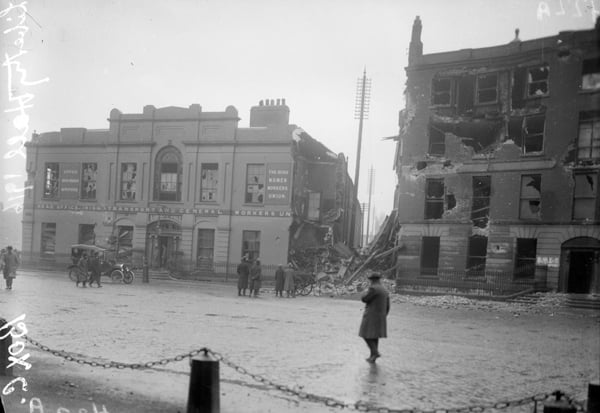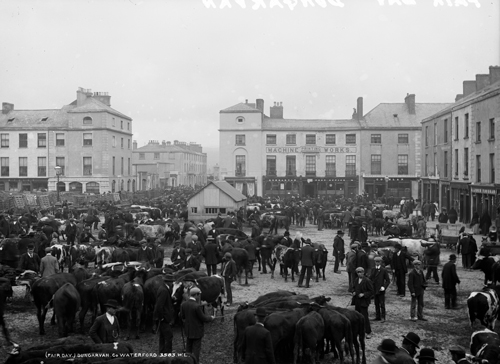Waterford farm dispute continues amid growing labour unrest and internal union rows
Waterford, 12 June 1923 - A dispute between farmers and labourers in Co. Waterford shows no sign of ending after a meeting of farmer representatives in Dungarvan rejected a proposal to submit their case to arbitration. The farm workers have insisted upon entitlement to a ‘decent living’ and have said that, if necessary, they were prepared to ‘fight for it.’
In light of a previous conference with labourers representatives, the Executive of the Co. Waterford Farmers Union, which is led by Senator Sir John Keane, determined that the issue of concern was no longer simply the wages that they paid, but whether or not they were the owners of their own farms.
‘We don’t claim that they are generous wages’, Senator Keane has remarked, ‘but they are the very utmost the farmers can pay.’ However, Senator Keane has also linked the current dispute with a broader pattern of what has been termed Bolshevism in the south of the country across the last two years, which he claimed had seen the seizure of 80 creameries in 1922 alone.
The defiance of the Farmers executive is supported by local traders. At the same as 120 farmers were deciding to face down the labourers demands in Dungarvan, a meeting of the Traders Protective Association was held at which it decided to seek out ways to support the farmers cause, the outcome of which is likely to be shop assistants being dismissed from their employment if they refuse to serve farmers.
The labourers strike action, which began last month, has its source in a wage reduction of about 10s 6d on the previous year’s wages. At conferences subsequently held the wage offer was extended with different rates for summer and winter, but these were refused by the labourers.
A resolution adopted by the labourers declares that ‘All the forces of capital are combined to break the Labour movement and drive the working classes back to pre-war conditions.’
The concerns of farm labourers are of course echoed in other sectors of the economy. In Dublin, for instance, theatre and music hall employees - all members of the Transport and General Workers’ Union - have likewise refused acceptance of reduced rates of wages, which were proposed by employers on June 2nd.
Also in Dublin, a largely attended public meeting in Dun Laoghaire, was held by Irish Nurses and Midwives Union (INMU) to protest against a reduction of £30 per annum of the salaries of district midwives. The meeting was chaired by Helena Moloney of the Irish Women Workers Union.
The current wave of disputes is nevertheless not confined to the strained relations between employers and employees. Tensions have also surfaced within the labour movement itself, where Mr. James Larkin and his supporters took possession of the Irish Transport and General Workers Union (ITGWU) headquarters at Liberty Hall and refused admission to its Executive membership, including the union’s General President, Mr. Thomas Foran, who were forced to take up alternative accommodation at 13 Westmoreland Street.
A statement issued by the ITGWU Executive has denounced Mr. Larkin’s action as ‘illegal’ and has assured members that it will be taking ‘all necessary steps’ to vindicate the authority of the Executive Committee chosen by the membership.
The Executive Committee insists that the Union will ‘not be handed over to the dictatorship of one man’, but will be controlled an Executive Committee elected in a proper and orderly manner in accordance with the rules to carry out the instructions of its members.’

A damaged Liberty Hall following the bombardment by the Helga during Easter week. The HQ of the ITGWU has been occupied by James Larkin his supporters, forcing the union’s executive to relocate to alternative premises.
[Editor's note: This is an article from Century
Ireland, a fortnightly online newspaper, written from the
perspective of a journalist 100 years ago, based on news
reports of the time.]





















